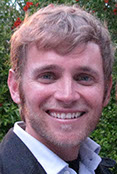
报告题目: Scientific and Technical Opportunities with Fiber-based Astronomical Spectrometers
时 间:2018年9月26日上午9:00-10:30
地 点:武汉光电国家研究中心A302
报 告 人:Prof. Kevin Bundy, PI of TMT-WFOS, UCO Lick, University of California, Santa Cruz.
报告简介:
The ability to mold and manipulate light is an increasingly important technology thanks to growing industries in communications, sensing, and medicine. Scientific applications, such as astronomical instruments on large telescopes, make use of this technology to address important scientific questions, including on the nature of our universe, dark energy, dark matter, and the origin of life. Astronomical instruments, and spectrometers in particular, place extreme demands on sensitivity, spectral resolution, and data volume that in turn motivate technological breakthroughs in optics and photonics on the 5-10 year time scale. In this talk, I will discuss state-of-the-art, fiber-based spectrometers for existing and planned astronomical telescopes such as the Thirty Meter Telescope (TMT), focusing on active areas of technological development. The inability to simply scale up these designs for the future instruments that will be required demonstrates how important it is for new technologies to be innovated. I will present some avenues of technology development that could have major benefits to science as well as applications to industry.
报告人简介:
Kevin is an associate researcher at UCO Lick, UCSC since 2016. Before that, he was an assistant professor at the Kavli IPMU. And previous to that, he was also a Hubble Fellow at UC Berkeley and a Reinhardt Fellow at the U. of Toronto. He completed his Ph.D. at Caltech in 2006.
Kevin’s research work utilizes new "Big Data" survey programs combined with observations from premier telescopes to probe the physical processes responsible for the growth and evolution of galaxies over the last 10 billion years. Now Kevin is appointed at UC Observatories and will be adjunct faculty at UC Santa Cruz. As part of his UCO involvement, he is the PI of the Thirty Meter Telescope's Wide-field Optical Spectrograph (WFOS). WFOS is one of the most important scientific instruments for TMT.
Kevin is also the founder and Principal Investigator of MaNGA, one of three programs in the current Sloan Digital Sky Survey (SDSS-IV). MaNGA stands for Mapping Nearby Galaxies at Apache Point Observatory and is obtaining resolved spectroscopy for an unprecedented 10,000 galaxies. MaNGA will study the life history of galaxies, providing clues about their early formation, maps characterizing their ongoing growth, and insight into the processes that eventually cause their star formation to "die out." The MaNGA have over 300 team members spanning more than 60 institutions around the world.